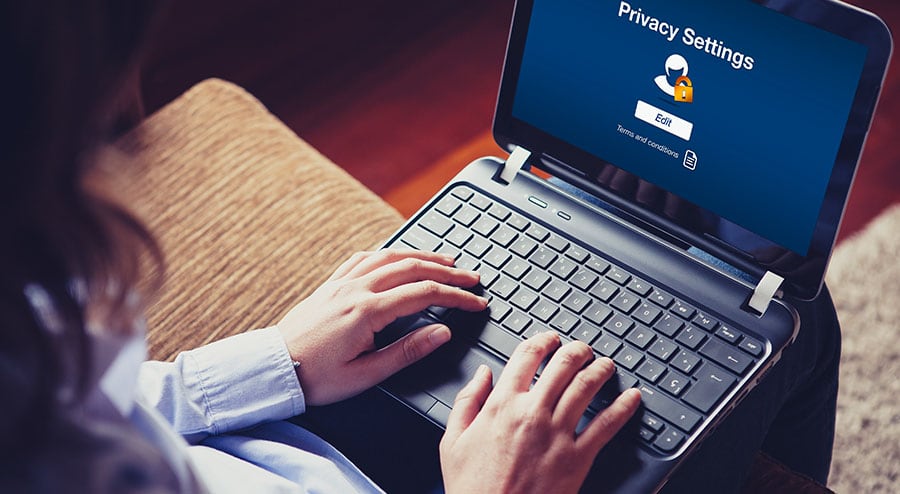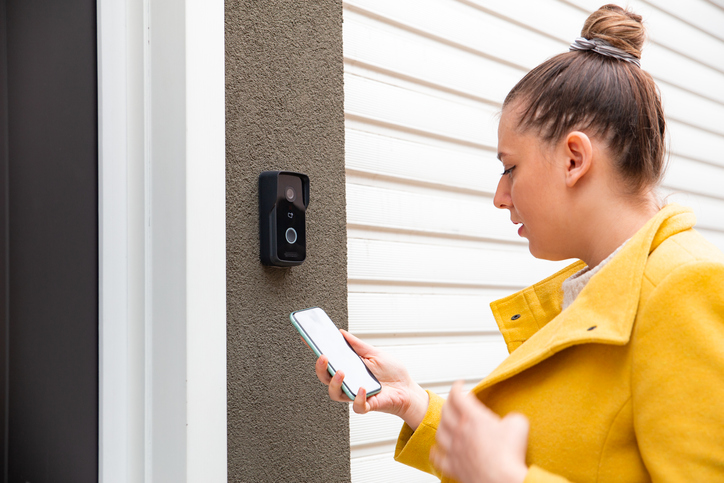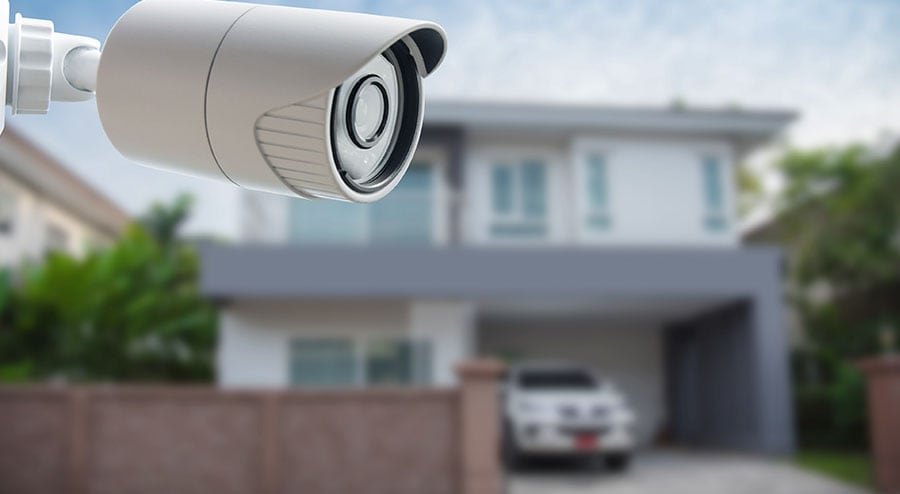In the ever-evolving world of remote work, securing your home office has become a top priority for remote workers. As the boundaries between home and office blur, protecting sensitive data, ensuring privacy, and mitigating cyber threats are essential to maintaining a safe and productive work environment.

Understanding Home Security Challenges For Remote Workers
Remote work offers unparalleled flexibility and convenience, allowing employees to work from the comfort of their homes. However, this shift in the work environment comes with its own set of security challenges that remote workers must be vigilant about. One of the primary risks is the increased vulnerability to cyber-attacks. Unlike corporate networks with robust security measures, home networks may lack the same level of protection, making remote workers susceptible to hacking attempts, malware infections, and phishing attacks.
- Understanding Home Security Challenges For Remote Workers
- Securing Your Home Office Space
- Addressing Potential Threats When Sharing Living Spaces
- Securing Your Home Network And Devices
- Protecting Sensitive Data And Information
- Traveling And Working From Different Locations
- Implementing Backup And Data Recovery Plans For Remote Work Files
- Compliance And Insurance Considerations
- Conclusion
Physical security concerns also come into play when working from a home office. Traditional office settings are equipped with dedicated security personnel, access control systems, and surveillance cameras, providing a secure environment for employees. However, in a home setting, these physical security measures might not be as comprehensive, making the home office a potential target for burglaries or unauthorized access.
Remote workers who share living spaces with family members or roommates face the risk of insider threats. This means that sensitive information could be inadvertently exposed to individuals who do not have proper authorization to access it. Such insider incidents can lead to data breaches and compromise the confidentiality of sensitive business data.
Home-based remote workers might encounter challenges in receiving immediate IT support. In traditional office settings, there are IT departments equipped to address technical issues and security incidents promptly. However, remote workers might experience delays in getting support, which could exacerbate security vulnerabilities and operational disruptions.
The handling of data in a home environment presents its own set of risks. There may be increased chances of accidental data leakage through unsecured devices or shared resources, potentially leading to breaches and compliance violations.
Home Office Security Risks Vs Traditional Office Settings
In a traditional office, there are usually dedicated security personnel, access control systems, and surveillance cameras to protect the workspace. At home, these physical security measures might not be as comprehensive.
Corporate networks are designed and maintained with a focus on security, often incorporating firewalls, intrusion detection systems, and regular updates. Home networks, on the other hand, might lack the same level of protection and maintenance.
In a traditional office, there are strict protocols for handling sensitive data, including secure file storage, shredding of physical documents, and controlled access to information. At home, remote workers must establish similar protocols to ensure data security.
When in a traditional office, communication, and collaboration tools are typically provided and secured by the organization. Remote workers must choose and secure their communication tools carefully to prevent data breaches or unauthorized access.
According to a survey conducted by McAfee, a cybersecurity company, 76% of remote workers admitted to using their personal devices for work-related tasks during the COVID-19 pandemic. This practice can increase the risk of security breaches and data exposure, highlighting the importance of implementing proper security measures for home offices to protect sensitive information and maintain data privacy while working remotely.
The Significance Of Cybersecurity In Remote Work Scenarios
In the context of remote work, cybersecurity takes on a critical role in safeguarding sensitive information and ensuring the smooth operation of businesses. The confidentiality, integrity, and availability of data become paramount concerns for remote workers, who handle valuable company information and personal data. By implementing robust cybersecurity measures, remote workers can protect this data from falling into the wrong hands and prevent potentially devastating data breaches.
Cybersecurity plays a vital role in maintaining business continuity. With the increasing reliance on remote work arrangements, organizations must ensure that their remote workforce can operate securely and without interruptions. Effective cybersecurity measures reduce the risk of cyber incidents that could disrupt remote work operations, ensuring that businesses can continue to function efficiently regardless of the work environment.
In addition to business continuity, complying with industry-specific regulations and legal obligations is essential for remote workers. Many industries have strict data security standards that remote workers must adhere to, ensuring that sensitive data is appropriately protected. Compliance not only mitigates legal risks but also enhances the organization’s reputation, fostering trust with clients and partners who rely on the security and privacy of their shared information.
Beyond protecting business interests, cybersecurity also extends to safeguarding remote workers’ personal privacy. As they work from home, remote employees may inadvertently expose their personal information to cyber threats. By prioritizing cybersecurity, remote workers can protect their own data and ensure their safety and privacy in the digital landscape.
Securing Your Home Office Space
Securing your home office space is of paramount importance in today’s world of remote work. As an increasing number of professionals embrace the flexibility and convenience of working from home, ensuring the safety and confidentiality of sensitive information becomes a top priority. A well-protected home office not only safeguards valuable data but also fosters a productive and focused work environment.
Evaluating The Physical Security Of The Home Office
Creating a secure home office starts with assessing the physical vulnerabilities of the space. Remote workers should ensure that all doors and windows are equipped with sturdy locks, preferably deadbolts. If the home office is located on the ground floor, installing security bars on windows can add an extra layer of protection. Adequate outdoor lighting around the home, particularly near the office entrance, can deter potential intruders. If the budget allows, installing a home security system with motion sensors and a loud alarm can serve as a potent deterrent against break-ins.
Securing Sensitive Documents And Materials
Sensitive documents and materials should be stored securely within the home office. Remote workers should invest in a locked file cabinet or safe to store important papers, such as financial records, contracts, or confidential client information. Additionally, any physical copies of passwords or sensitive data should be kept out of sight and only accessible to authorized individuals. Properly shredding and disposing of unnecessary sensitive documents can prevent them from falling into the wrong hands and reduce the risk of identity theft.
Implementing Smart Home Security Systems And Gadgets
Smart security cameras offer remote workers the ability to monitor their home office from anywhere using their smartphones or computers. When selecting security cameras, features like high-definition resolution, wide-angle views, and night vision are important considerations. Cloud storage options allow for footage to be securely stored off-site, minimizing the risk of data loss in case of camera theft or damage. Installing visible outdoor security cameras can serve as a deterrent to potential intruders. Pairing security cameras with motion-activated alarms can further enhance the security of the home office.
Integrating Smart Locks And Access Control Measures
Smart locks provide an added layer of security by replacing traditional door locks with keyless entry systems. Remote workers can use their smartphones or access codes to unlock doors, reducing the risk of lost or stolen keys. Some smart locks also offer features like remote locking and unlocking, allowing remote workers to grant temporary access to trusted individuals, such as delivery personnel or maintenance workers. Integrating access control measures, such as biometric scanners or key fobs, can restrict access to the home office to authorized individuals only.
Addressing Potential Threats When Sharing Living Spaces
Working from home often entails sharing living spaces with family members, roommates, or housemates, which can introduce potential insider threats to the security of the home office. While trusted individuals may not have malicious intent, accidental exposure of sensitive work-related information could occur. To address this concern, it is essential to establish clear boundaries and communicate the significance of confidentiality within the home office. Designating the workspace as a private area can help remind others to respect its security.
One crucial step is to ensure that all work devices are password-protected, limiting access only to authorized individuals. By implementing secure device locking practices, you can prevent accidental access to work-related data, even if others have access to shared devices. Educating household members about the risks of insider threats and the importance of safeguarding sensitive data can raise awareness and encourage a collective effort to maintain security.
Consistent communication about best practices for data security and the importance of adhering to them can significantly reduce the likelihood of accidental breaches. Encouraging all household members to be vigilant about locking their personal devices when not in use further minimizes the risk of data exposure.
Securing Your Home Network And Devices
In the era of remote work and increasing reliance on home networks, ensuring the security of our digital environment has become more critical than ever. Securing your home network and devices is essential to safeguarding sensitive data, protecting privacy, and defending against potential cyber threats. As remote workers, we must be proactive in fortifying our Wi-Fi networks and connected devices to prevent unauthorized access and data breaches.
Strengthening Wi-Fi Security To Prevent Unauthorized Access
The first line of defense in securing your home network is to set a strong and unique password for your Wi-Fi router. Avoid using default or easily guessable passwords, such as “admin” or “password.” Instead, create a complex password with a combination of upper and lower-case letters, numbers, and special characters. Longer passwords are generally more secure, so aim for a minimum of 12 characters. Additionally, refrain from using personal information or common words that could be easily associated with you.
Wi-Fi Protected Access 3 (WPA3) is the latest and most secure encryption protocol for wireless networks. Ensure that your Wi-Fi router is set to use WPA3 encryption to protect your data from potential eavesdropping and unauthorized access. For older devices that do not support WPA3, WPA2 with AES encryption is a viable alternative.
Furthermore, disable Wi-Fi Protected Setup (WPS) on your router if it is enabled by default. WPS is a convenient feature for connecting devices to the Wi-Fi network quickly, but it is susceptible to brute-force attacks. By disabling WPS, you eliminate a potential entry point for attackers.
Leveraging Virtual Private Networks (VPNs) For Enhanced Online Security
Virtual Private Networks (VPNs) are crucial tools for remote workers seeking to bolster their online security and privacy. A VPN creates an encrypted tunnel between your device and the internet, effectively shielding your internet traffic from prying eyes. When connected to a VPN, your data is encrypted, making it difficult for hackers and other malicious actors to intercept and decipher your communications.
VPNs are particularly valuable when using public Wi-Fi networks, such as those in cafes or airports, which are more susceptible to hacking attempts. With a VPN, you can work confidently knowing that your data is protected, regardless of the network’s security.
Selecting A Reliable VPN Service Provider
Choosing the right VPN service provider is crucial to ensuring the effectiveness of your VPN connection. Look for a reputable and trustworthy VPN service that has a strong track record in safeguarding user data and privacy. Consider factors such as the provider’s logging policy (no-logs policy is preferred), encryption protocols offered, server locations, and connection speed.
It is essential to avoid free VPNs, as they may compromise your privacy by logging and selling your data. Opt for paid VPN services that prioritize user privacy and have a transparent approach to data protection.
Before committing to a VPN service, take advantage of any free trials or money-back guarantees to evaluate its performance and compatibility with your devices. Once you’ve selected a reliable VPN, install the VPN client on all devices you use for remote work to ensure consistent protection across your online activities.
Protecting Sensitive Data And Information
As remote workers access and share valuable data from the comfort of their homes, the risk of cyber threats and data breaches looms large. Safeguarding confidential information, securing login credentials, and defending against phishing attacks are vital components of a robust data protection strategy.
Establishing Secure Authentication Methods
Two-factor authentication (2FA) is a powerful security measure that adds an extra layer of protection to your accounts. With 2FA enabled, remote workers are required to provide an additional piece of information, usually a unique code sent to their mobile device or generated by an authenticator app, after entering their password. This extra step ensures that even if someone manages to obtain your password, they would still need physical access to your mobile device or the authenticator app to gain access to your accounts. Implementing 2FA on your work-related accounts, email, and other critical services greatly reduces the risk of unauthorized access and potential data breaches.
Password managers are indispensable tools for securely storing and organizing the plethora of passwords that come with remote work. These tools generate strong, complex, and unique passwords for each account, eliminating the need for users to remember them all. Password managers store encrypted passwords and can only be accessed with a master password known only to the user. This way, remote workers can create strong, unique passwords for every online service without the risk of forgetting them or resorting to easily guessable options. By centralizing and securing login credentials, password managers significantly enhance the security of sensitive data.
Protecting Against Phishing And Other Online Scams
Phishing remains one of the most prevalent cyber threats, targeting remote workers through emails, messages, or websites designed to appear legitimate. Remote workers must familiarize themselves with common phishing tactics, such as urgent requests for personal information, suspicious links, or email addresses that imitate well-known companies or colleagues. Look for warning signs, like spelling and grammar errors, generic greetings, or requests for immediate action. By being cautious and vigilant, remote workers can avoid falling victim to phishing attempts and prevent unauthorized access to their accounts and sensitive information.
Education is a powerful weapon against phishing attacks. Remote workers should undergo regular training and awareness programs that educate them about phishing threats and prevention strategies. Employers can provide resources and mock phishing exercises to familiarize their workforce with the warning signs and appropriate responses. It is essential to emphasize the importance of never sharing login credentials or personal information in response to unsolicited communications. By raising awareness and fostering a culture of cybersecurity, remote workers become a formidable line of defense against phishing and other online scams.
Ensuring Privacy During Video Conferencing And Communication
Video conferencing and communication tools have become integral to remote work collaboration. Remote workers must select reputable and secure platforms that prioritize user privacy and data protection. Look for tools with end-to-end encryption, which ensures that only the intended recipients can access the communication content. Additionally, enable features like password protection and waiting rooms to prevent unauthorized individuals from joining meetings. Be cautious about sharing meeting links or access credentials on public forums to maintain the confidentiality of virtual interactions.
Working from home may mean sharing living spaces with others, and privacy concerns arise when engaging in video calls. To prevent unintended exposure of sensitive information, consider using privacy filters on your screen to limit the viewable content to your eyes only. Privacy filters ensure that those around you cannot read sensitive data or documents displayed on your screen during video calls. Additionally, employ soundproofing techniques, such as using noise-canceling headphones or selecting a quiet workspace, to prevent confidential discussions from being overheard by others in the vicinity.
Traveling And Working From Different Locations
As remote work continues to gain popularity, the concept of traveling and working from different locations has become a reality for many professionals. Embracing the freedom to work from anywhere brings with it new challenges and security considerations. Working remotely on the go requires a strategic approach to maintain data security, productivity, and connectivity while away from the traditional office environment.
Mitigating Security Risks While Working Remotely On The Go
When working from different locations, remote workers often rely on public Wi-Fi networks for internet access. However, public Wi-Fi hotspots can be vulnerable to cyber attacks, as they are often unsecured and open to potential eavesdropping. To mitigate security risks, remote workers should avoid accessing sensitive data or logging into critical accounts while connected to public Wi-Fi.
Instead, consider using a Virtual Private Network (VPN) to encrypt internet traffic and establish a secure connection to the internet. A VPN acts as a shield, preventing unauthorized access and protecting data from prying eyes, even on unsecured networks. By connecting to a VPN before accessing the internet on public Wi-Fi, remote workers can significantly enhance their online security and privacy.
Using Mobile Hotspots And Data Encryption
An alternative to public Wi-Fi is using a personal mobile hotspot. Most smartphones allow users to create a secure mobile hotspot, utilizing cellular data to provide internet access for other devices. This option is generally safer than public Wi-Fi, as it offers a more controlled and encrypted connection.
Ensure that data encryption is enabled on all devices. Encryption converts data into a coded form that can only be decrypted with the appropriate encryption key. In case a device is lost or stolen, encryption ensures that sensitive data remains inaccessible to unauthorized users. Most modern devices offer built-in encryption features, which should be activated to provide an extra layer of protection.
Implementing Backup And Data Recovery Plans For Remote Work Files
Cloud-based storage solutions offer a secure and convenient way to store and access remote work files from different locations. Providers like Google Drive, Dropbox, or Microsoft OneDrive encrypt data during transmission and storage, ensuring the safety of sensitive information. These platforms also provide versioning, allowing users to restore previous file versions in case of accidental changes or data corruption.
By saving work files to cloud storage, remote workers reduce the risk of data loss due to device malfunction, theft, or damage. Cloud storage also facilitates collaboration with team members, enabling seamless access to shared documents from any location with an internet connection.
Creating Regular Data Backups To Prevent Data Loss
In addition to cloud-based storage, remote workers should implement a regular data backup routine. While cloud storage offers protection against device-specific issues, periodic backups ensure data redundancy and provide an extra layer of data protection.
Consider using an external hard drive or network-attached storage (NAS) device to back up important files. Many operating systems offer built-in backup tools, or third-party backup software can be utilized for automated and scheduled backups. By maintaining multiple copies of critical data, remote workers safeguard their work against unexpected events and minimize the impact of data loss.
Compliance And Insurance Considerations
As remote work becomes more prevalent, understanding regulations and compliance standards related to home office security is crucial for both remote workers and their employers. Different industries may have specific legal requirements and guidelines concerning data protection, confidentiality, and information security. For example, organizations dealing with sensitive customer data may be subject to industry-specific regulations like GDPR (General Data Protection Regulation) in the European Union or HIPAA (Health Insurance Portability and Accountability Act) in the healthcare sector.
Remote workers must familiarize themselves with relevant regulations that apply to their work, ensuring that they are in compliance with these rules while operating from their home offices. Employers, too, have a responsibility to communicate and provide resources to remote workers about compliance expectations and best practices.
Insurance Options To Protect Against Home Office-Related Incidents
Home office-related incidents, such as theft, property damage, or accidents, can have significant financial implications for remote workers. To mitigate potential risks, remote workers should explore insurance options that provide coverage for home offices and the assets within them.
Homeowner’s insurance or renter’s insurance policies may offer some degree of coverage for home office equipment and liability. However, it is essential to review the policy terms carefully to determine the extent of coverage provided. Some policies may have limitations on coverage for business-related equipment or activities, making additional insurance coverage necessary.
For remote workers who conduct their own business or work as freelancers, specialized business insurance, such as professional liability insurance or business property insurance, may be more suitable. These insurance options can provide more comprehensive coverage for home office equipment, data breaches, and potential legal claims related to the services provided.
Before selecting an insurance policy, remote workers should consult with an insurance agent or broker to assess their specific needs and identify the most appropriate coverage options. By investing in suitable insurance coverage, remote workers can protect their assets, business interests, and financial well-being in the event of unforeseen incidents related to their home office.
Conclusion
Securing your home office as a remote worker is paramount for maintaining data privacy, productivity, and overall well-being. By evaluating physical security, implementing smart home systems, and addressing insider threats, remote workers can fortify their workspaces. Protecting sensitive data involves secure authentication, recognizing phishing attempts, and ensuring privacy during communication. Working from different locations requires caution with public Wi-Fi and implementing data backup plans. Compliance with regulations and exploring insurance options further enhance security. With a well-protected home office, remote workers can confidently embrace the advantages of remote work while safeguarding their information and productivity.




